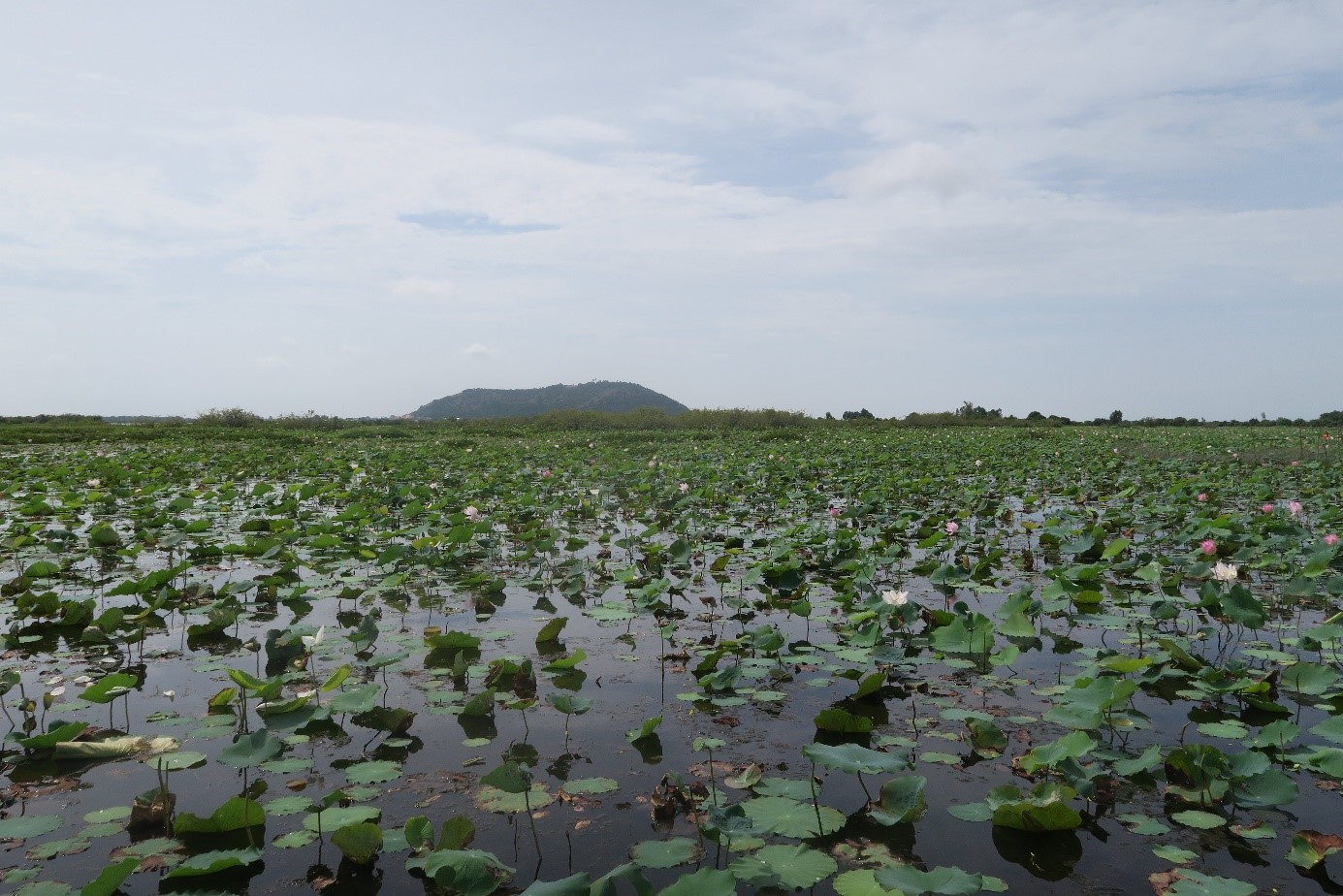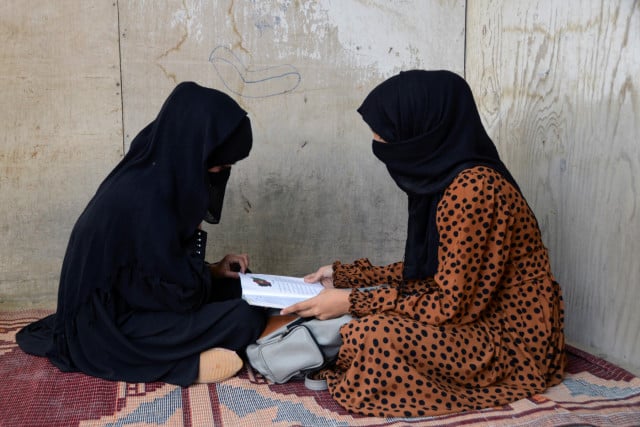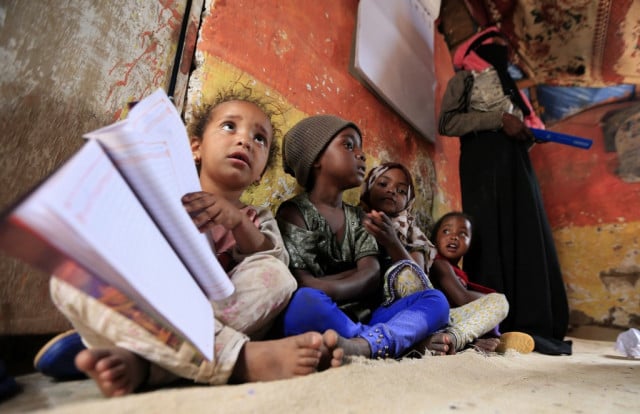Eco-Farm Crafts a Business out of Lotus Plants
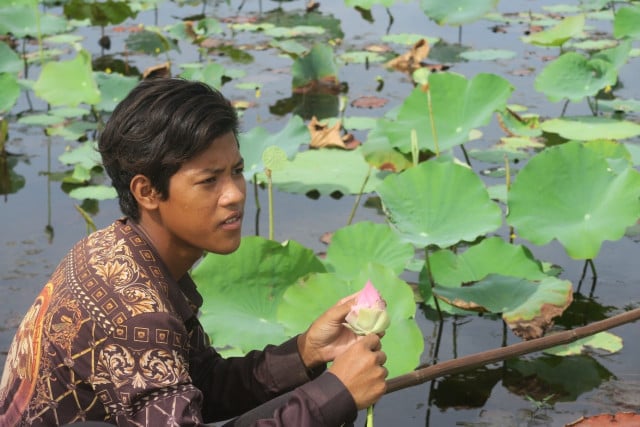
- By Nicolò Tissier
- September 2, 2023 3:00 PM
SIEM REAP – The Lotus Farm is a social enterprise that cultivates and makes handicraft products out of lotus plants. The project was initiated by the social enterprise Samathoa Lotus Textiles 20 years ago.
The farm is a few kilometers west of Siem Reap city center but the lotus aquatic fields are a further two kilometers away.
It also uses its conservation approach to attract eco-tourists who can visit the fields and to follow a tour guide of the manufacturing processes. Workshops give visitors a chance to experiment with making their own products.
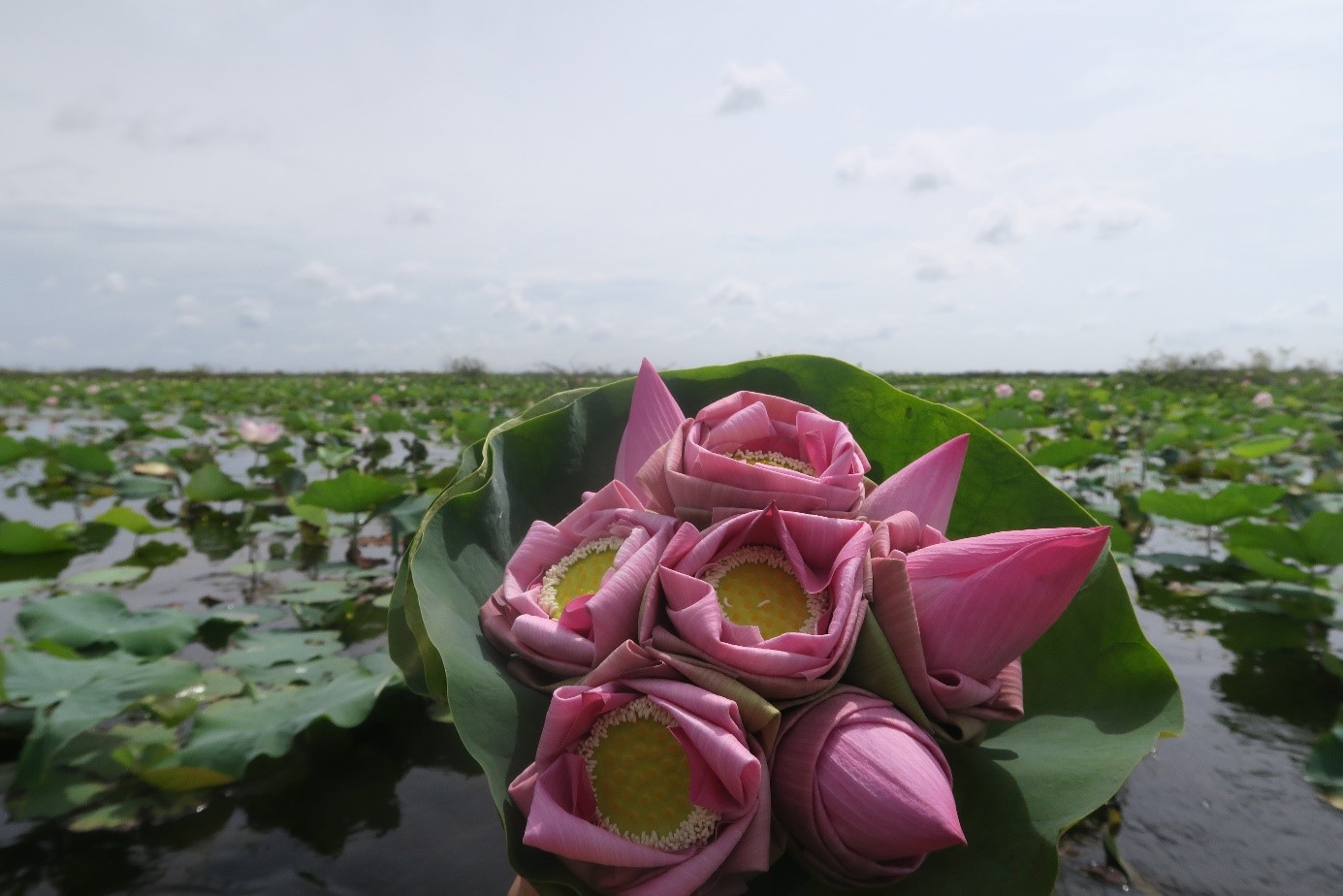
Each morning, fresh lotus stems are cut in the fields and directly brought to the Lotus farm to be processed. The whole process must be done in 24 hours before the fiber dries and becomes unusable.
The plant species they use is called the flower of Buddha, and it makes the sacred lotus flower. The sacred lotus flower needs three days to complete its pollination, a process helped by bees.
The main use of the lotus is to produce a fiber to make clothes and other textile products.
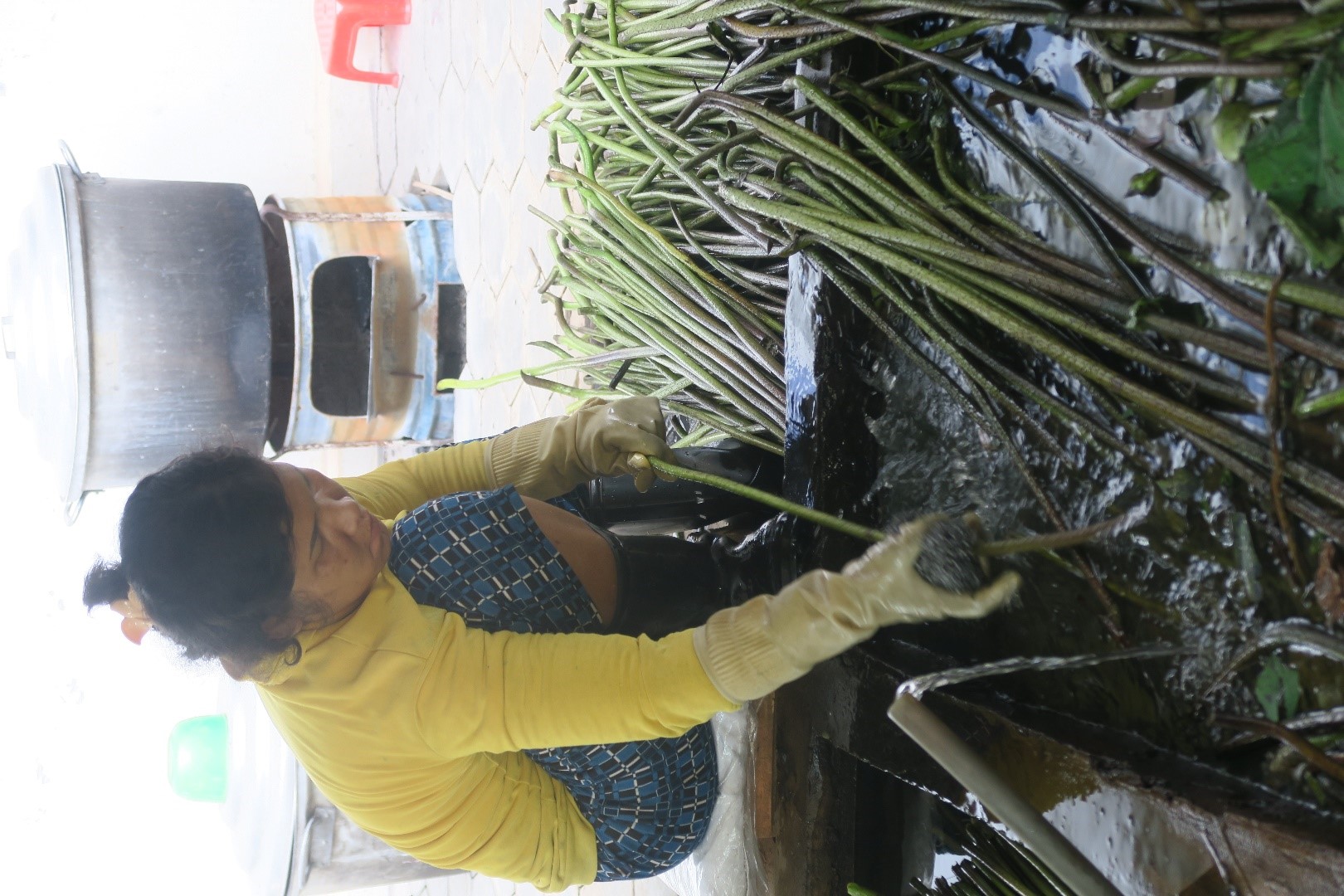
The first step is to weave the fiber to make tissue out of it. To extract more fiber and make the longest strands, the fiber must be stretched as slowly as possible. Then they mix and connect the fibers together by hand.
Each woman who works at this stage can make 250 meters a day. However, 4000 meters of lotus thread are needed to make a scarf. Which means a single person would need to work for 16 days to produce the quantity necessary to make one. It’s a long-term but essential task that requires a lot of patience.
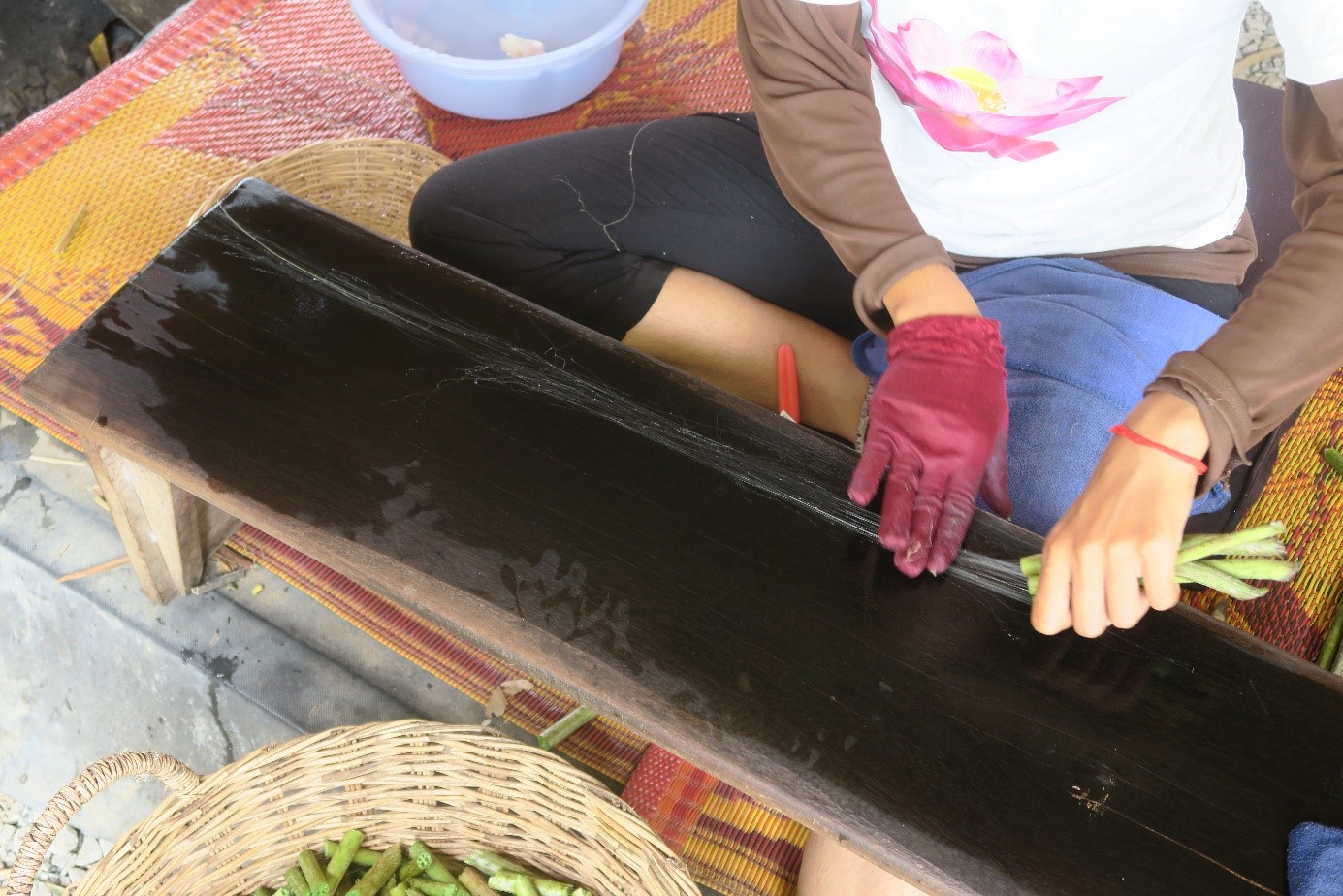
To survive during COVID, the farm needed to diversify its activities and had the idea to use the fiber to make masks. This was a great success because they discovered the fiber had antibacterial properties.
The social enterprise aims to create a circular economy, and to promote a logic of recycling to all its stages and elements.
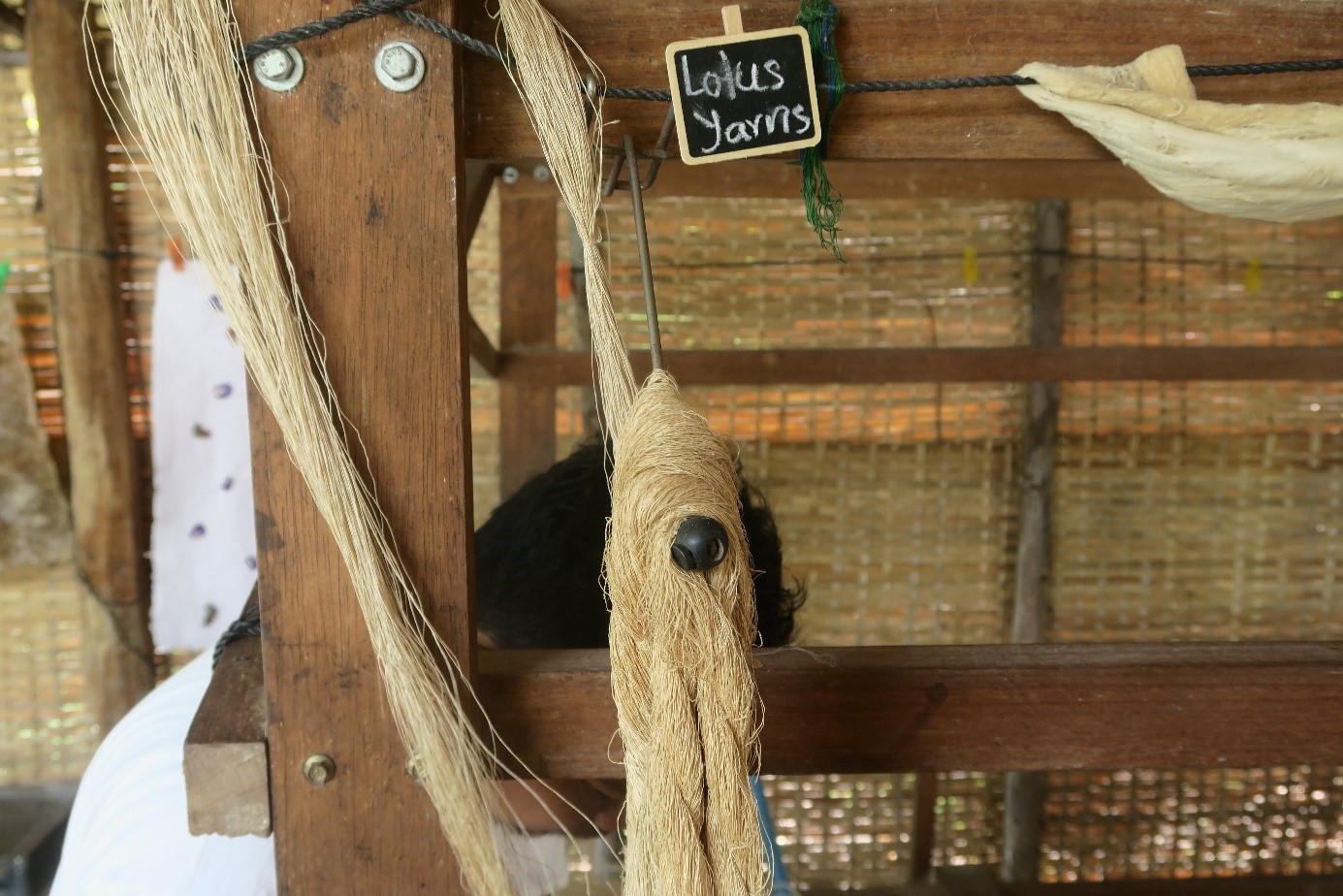
It always tries to innovate. They have a project to make eco gas out of the 300 tonnes of waste they produce each year. Some waste is used to make recycled paper and produce a substitute for plastic. Finally, they use the petals to make tea and biscuits.
